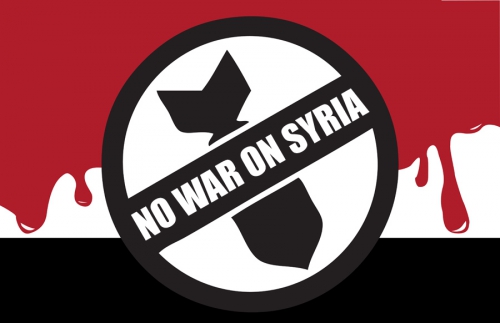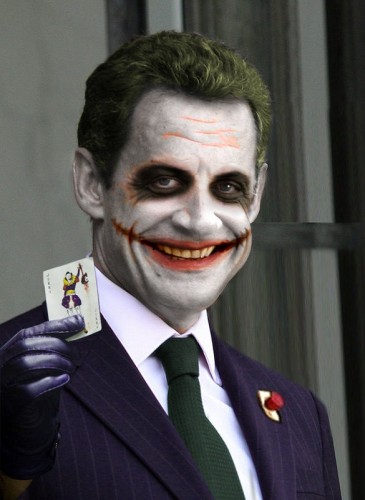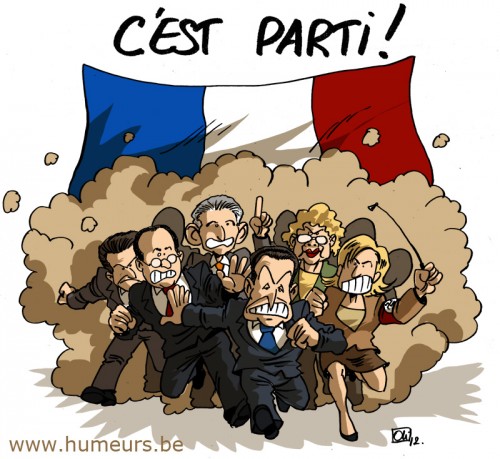Until recently the progressive mind has been resolutely closed and stubbornly frozen in place against all things Trump.
But cracks are appearing in the ice. With increasing frequency over the last few months, some of the most thoughtful left and progressive figures have begun to speak favorably of aspects of Trump’s foreign policy. Let us hear from these heretics, among them William Greider, Glen Ford, John Pilger, Jean Bricmont, Stephen F. Cohen and William Blum. Their words are not to be construed as “endorsements,” but rather an acknowledgment of Trump’s anti-interventionist views, the impact those views are having and the alternative he poses to Hillary Clinton in the current electoral contest.
First, let’s consider the estimable William Greider, a regular contributor to The Nation and author of Secrets of the Temple. He titled a recent article for the Nation, “Donald Trump Could be The Military Industrial Complex’s Worst Nightmare: The Republican Front Runner is Against Nation Building. Imagine That.”
Greider’s article is brief, and I recommend reading every precious word of it. Here is but one quote: “Trump has, in his usual unvarnished manner, kicked open the door to an important and fundamental foreign-policy debate.” And here is a passage from Trump’s interview with the Washington Post that Greider chooses to quote:
“’I watched as we built schools in Iraq and they’d be blown up,’ Trump told the editors. ‘And we’d build another one and it would get blown up. And we would rebuild it three times. And yet we can’t build a school in Brooklyn.… at what point do you say hey, we have to take care of ourselves. So, you know, I know the outer world exists and I’ll be very cognizant of that but at the same time, our country is disintegrating, large sections of it, especially in the inner cities.’”
Trump talks about building infrastructure for the inner cities, especially better schools for African American children, rather than bombing people of color halfway around the world! That is hardly racism. And it is not how the mainstream media wants us to think of The Donald.
Next, Glen Ford, the eloquent radical Left executive editor of Black Agenda Report, a superb and widely read outlet, penned an article in March 2016, with the following title: “Trump Way to the Left of Clinton on Foreign Policy – In Fact, He’s Damn Near Anti-Empire.” Ford’s piece is well worth reading in its entirety; here are just a few quotes :
“Trump has rejected the whole gamut of U.S. imperial war rationales, from FDR straight through to the present.”
“If Trump’s tens of millions of white, so-called ‘Middle American’ followers stick by him, it will utterly shatter the prevailing assumption that the American public favors maintenance of U.S. empire by military means.”
“Trump shows no interest in ‘spreading democracy,’ like George W. Bush, or assuming a responsibility to ‘protect’ other peoples from their own governments, like Barack Obama and his political twin, Hillary Clinton.”
“It is sad beyond measure that the near-extinction of independent Black politics has placed African Americans in the most untenable position imaginable at this critical moment: in the Hillary Clinton camp.”
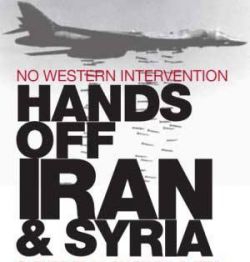 Next, let’s turn to John Pilger, the Left wing Australian journalist and documentary film maker who has been writing about Western foreign policy with unimpeachable accuracy and wisdom since the Vietnam War era. Here are some of his comments on Trump:
Next, let’s turn to John Pilger, the Left wing Australian journalist and documentary film maker who has been writing about Western foreign policy with unimpeachable accuracy and wisdom since the Vietnam War era. Here are some of his comments on Trump:
“..Donald Trump is being presented (by the mass media) as a lunatic, a fascist. He is certainly odious; but he is also a media hate figure. That alone should arouse our skepticism.”
“Trump’s views on migration are grotesque, but no more grotesque than those of David Cameron. It is not Trump who is the Great Deporter from the United States, but the Nobel Peace Prize winner, Barack Obama.”
“In 1947, a series of National Security Council directives described the paramount aim of American foreign policy as ‘a world substantially made over in [America’s] own image’. The ideology was messianic Americanism. We were all Americans. Or else. …”
“Donald Trump is a symptom of this, but he is also a maverick. He says the invasion of Iraq was a crime; he doesn’t want to go to war with Russia and China. The danger to the rest of us is not Trump, but Hillary Clinton. She is no maverick. She embodies the resilience and violence of a system whose vaunted ‘exceptionalism’ is totalitarian with an occasional liberal face.”
The money quote is: “The danger to the rest of us is not Trump, but Hillary Clinton.” When Pilger submitted his article to the “progressive” magazine Truthout, this sentence was deleted, censored as he reported, along with a few of the surrounding sentences. Such censorship had not been imposed on Pilger by Truthout ever before. Truthout’s commitment to free speech apparently has limits in the case of The Donald versus Hillary, rather severe ones. So one must read even the progressive press with some skepticism when it comes to Trump.
Trump has also been noticed by the Left in Europe, notably by the sharp minded Jean Bricmont, physicist and author of Humanitarian Imperialism who writes here:
(Trump) “is the first major political figure to call for ‘America First’ meaning non-interventionism. He not only denounces the trillions of dollars spent in wars, deplores the dead and wounded American soldiers, but also speaks of the Iraqi victims of a war launched by a Republican President. He does so to a Republican public and manages to win its support. He denounces the empire of US military bases, claiming to prefer to build schools here in the United States. He wants good relations with Russia. He observes that the militarist policies pursued for decades have caused the United States to be hated throughout the world. He calls Sarkozy a criminal who should be judged for his role in Libya. Another advantage of Trump: he is detested by the neoconservatives, who are the main architects of the present disaster.”
And then there is Stephen F. Cohen, contributing editor for The Nation and Professor Emeritus of Russian History at Princeton and NYU. Cohen makes the point that Trump, alone among the presidential candidates, has raised five urgent and fundamental questions, which all other candidates in the major parties have either scorned or more frequently ignored. The five questions all call into question the interventionist warlike stance of the US for the past 20 plus years. Cohen enumerates the questions here, thus:
“Should the United States always be the world’s leader and policeman?
“What is NATO’s proper mission today, 25 years after the end of the Soviet Union and when international terrorism is the main threat to the West?
“Why does Washington repeatedly pursue a policy of regime change, in Iraq, Libya, possibly in Ukraine, and now in Damascus, even though it always ends in “disaster”?
“Why is the United States treating Putin’s Russia as an enemy and not as a security partner?
“And should US nuclear weapons doctrine include a no-first use pledge, which it does not?”
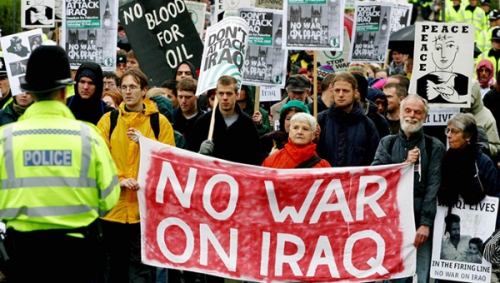
Cohen comments in detail on these questions here. Whatever one may think of the answers Trump has provided to the five questions, there is no doubt that he alone among the presidential candidates has raised them – and that in itself is an important contribution.
At this point, I mention my own piece, which appeared late last year. Entitled “Who is the Arch Racist, Hillary or The Donald”? Like Cohen’s pieces, it finds merit with the Trump foreign policy in the context of posing a question.
Finally, let us turn to Bill Blum, who wrote an article entitled, “American Exceptionalism and the Election Made in Hell (Or Why I’d Vote for Trump Over Hillary).” Again there is little doubt about the stance of Blum, who is the author of Killing Hope: U.S. Military and CIA Interventions Since World War II, a scholarly compendium, which Noam Chomsky calls “Far and away the best book on the topic.”
Blum begins his piece:
“If the American presidential election winds up with Hillary Clinton vs. Donald Trump, and my passport is confiscated, and I’m somehow FORCED to choose one or the other, or I’m PAID to do so, paid well … I would vote for Trump.”
“My main concern is foreign policy. American foreign policy is the greatest threat to world peace, prosperity, and the environment. And when it comes to foreign policy, Hillary Clinton is an unholy disaster. From Iraq and Syria to Libya and Honduras the world is a much worse place because of her; so much so that I’d call her a war criminal who should be prosecuted.”
And he concludes:
“He (Trump) calls Iraq ‘a complete disaster’, condemning not only George W. Bush but the neocons who surrounded him. ‘They lied. They said there were weapons of mass destruction and there were none. And they knew there were none. There were no weapons of mass destruction.’ He even questions the idea that ‘Bush kept us safe’, and adds that ‘Whether you like Saddam or not, he used to kill terrorists’.”
“Yes, he’s personally obnoxious. I’d have a very hard time being his friend. Who cares?”
I conclude with Blum’s words because they are most pertinent to our present situation. The world is living through a perilous time when the likes of the neocons and Hillary Clinton could lead us into a nuclear Armageddon with their belligerence toward Russia and their militaristic confrontation with China.
The reality is that we are faced with a choice between Clinton and Trump, a choice which informs much of the above commentary. Survival is at stake and we must consider survival first if our judgments are to be sane.



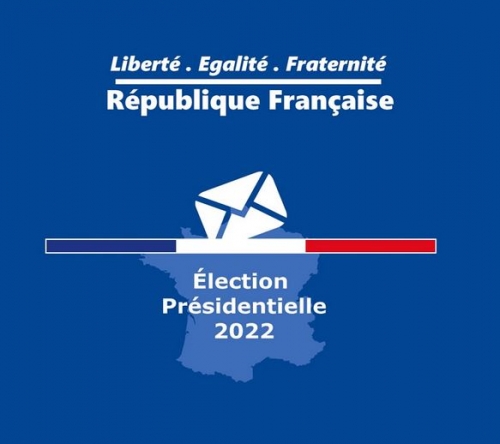
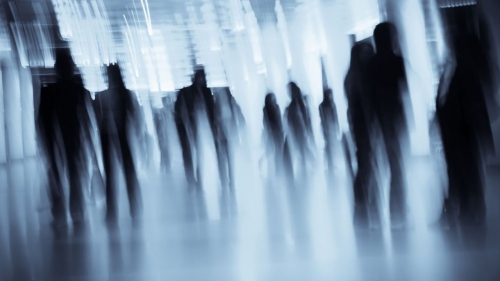
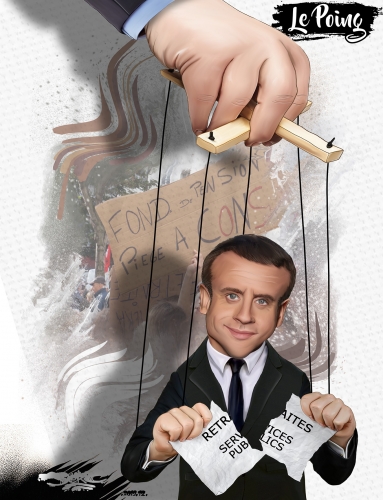
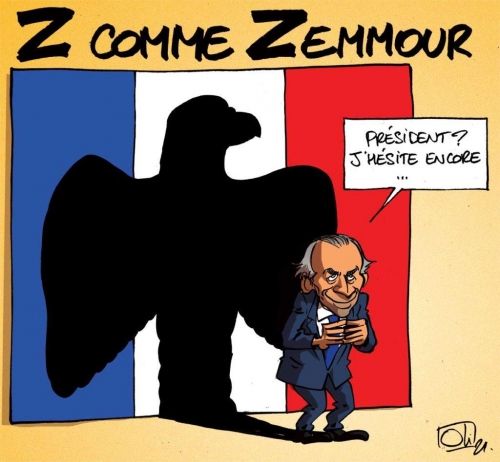

 del.icio.us
del.icio.us
 Digg
Digg